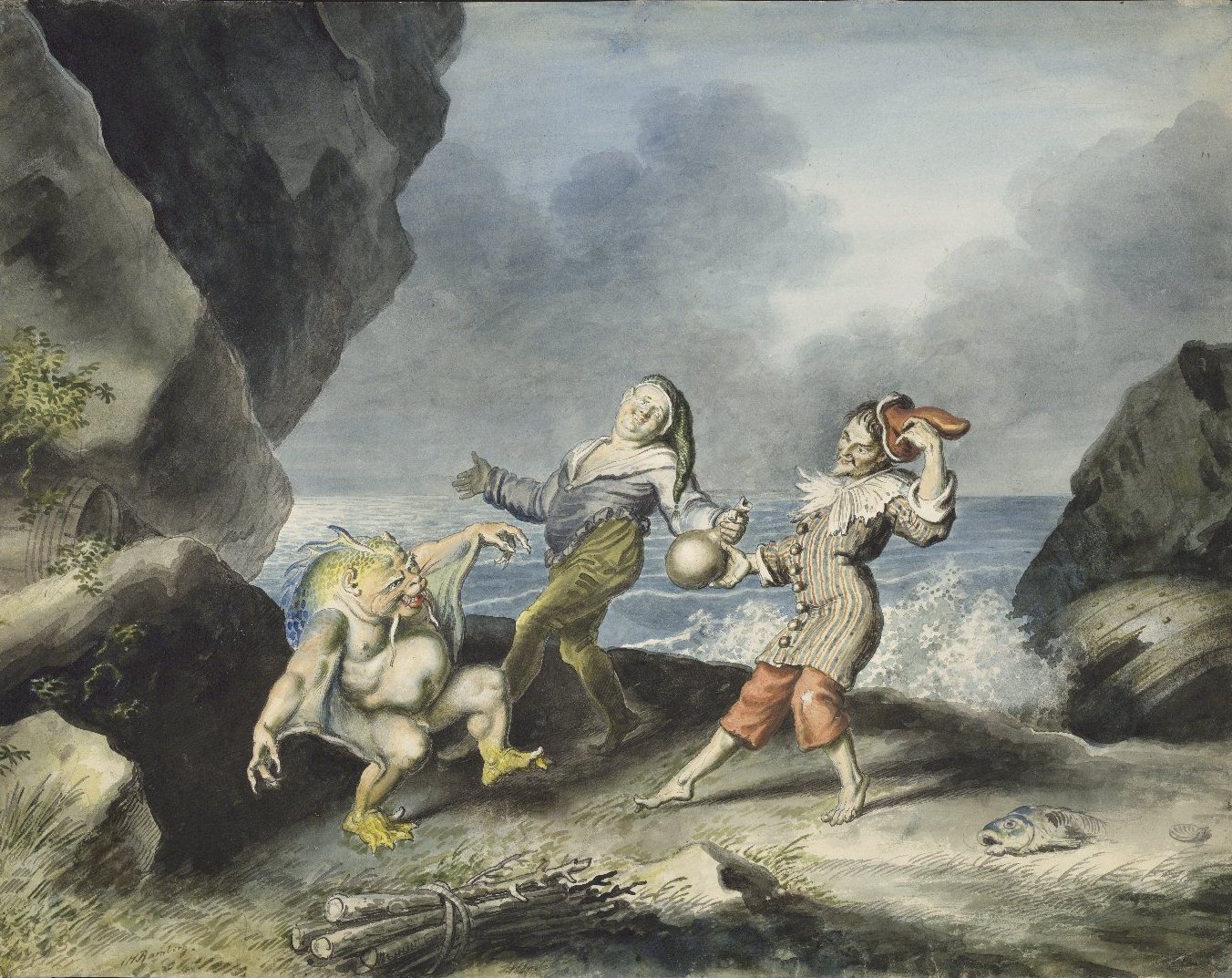I suppose I’ll start off by saying that The Tempest was a bit of a disappointment to me. Now don’t get me wrong. I love Shakespeare. I think he’s a genius. And The Tempest definitely had it’s moments and beautiful lines (“We are such stuff / As dreams are made on, and our little life / Is rounded with a sleep (IV.i.155-158).” I loved that bit), but I felt that it was quite underdeveloped as far as the characters and the plot goes. Which is fine, I guess, because there are so many other things to consider BECAUSE it’s so mysterious, like different interpretations, symbols, and themes, which Shakespeare did a great job of including in this play.
Maybe my inner social justice advocate, but the interpretation that Caliban and the island is being colonized is probably my favourite. Especially (as shown in Robert’s lecture) when we look at the different ways Caliban was portrayed, from being a fishy looking (and smelling) monster, to something that looks like a gorilla of sorts, to an unmistakenably African portrayal. The fact that Shakespeare even attempted to allude to colonialism in this way is pretty amazing.
At the end of The Tempest, Prospero dismisses Caliban, telling him to clean up his cell. But he was never formally released like Ariel was, despite the fact that they were both enslaved by Prospero. It’s important to note that Caliban’s final words on stage was an apology to Prospero for trying to leave him for Trinculo and Stephano, which reminds me a lot of the cycle of abuse, or battered woman syndrome in cases of spousal abuse. Caliban and Prospero are obviously not married, but it makes me think about how a person in an abusive relationship often apologizes to their abuser and always returns to them in the end. Which makes me think that, despite the fact that Caliban was technically relieved of his post as Prospero’s wood gatherer and that he got his island back, it’s hard to say that Caliban is completely liberated. Abuse leaves its marks on the victim the same way that colonization leaves its marks on a nation. The culture, the language, the people of a colonized nation are never the same, even after the colonizer has left. Caliban had clearly been affected by Prospero’s colonization of him, with the way he apologized to Prospero and with the fact that he seemed completely okay with submitting to Trinculo and Stephano, even doing it willingly. It’s just interesting to see the parallels between Caliban and colonization, because of the historical significance, for one thing. Also, though, because it’s an interesting thing that Shakespeare chose to emphasize in his last play. Whether he did so in criticism of his country or simply as an observation can be another debate.
(Sidebar: I wrote this post waaay late, I realize. I didn’t know that it had to be BEFORE my presentation. Oops. Now I know.)
